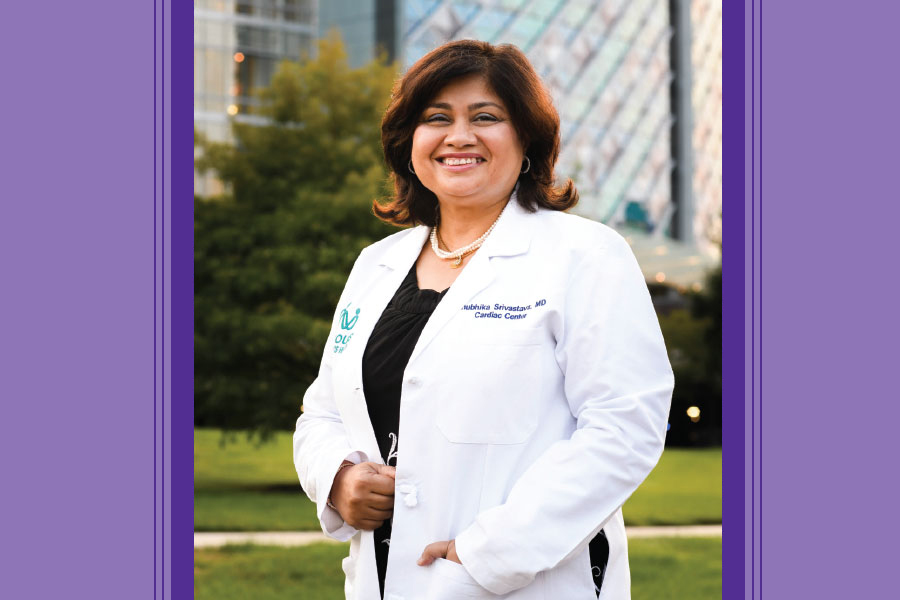Care for a Lifetime

The practice of fetal cardiology begins with diagnosis of a heart defect before birth and a plan of care through delivery and beyond. Dr. Shubhika Srivastava is a fetal cardiologist and chief of cardiology at Nemours Children’s Health. Here, she explains how a comprehensive approach to care for both mother and baby impacts long-term quality of life.
›› What would you like your patients to know about congenital heart disease prior to pregnancy? Congenital cardiac birth defects are the most prevalent of all birth defects, occurring in six to 12 babies for every 1,000 pregnancies. Early detection is essential for the best possible outcome.
›› What’s the role of a fetal cardiologist and how do the Nemours Children’s fetal heart and perinatal programs support expectant parents? A fetal cardiologist has advanced training in fetal echocardiography, which means we are able to perform and interpret detailed images of the developing fetal heart. Diagnosis of a congenital heart defect can be made as early as 12 weeks of pregnancy. A team of specialists is assembled that includes the mother’s OB and maternal-fetal medicine specialist (MFM) and a plan of care is developed. If surgery is needed, pediatric cardiothoracic surgeon Christian Pizarro, MD, whose surgical outcomes are among the best in the nation, is part of our team.
In some situations, babies will need specialized care from the moment they are born. That’s when mothers can deliver through our Advanced Delivery Program at Nemours Children’s Hospital in Wilmington, Delaware. This way mother and baby can stay together through the birth and continue to be cared for by the same team they’ve had from the very beginning. Also important, follow-up specialty care is available at several outpatient locations, keeping care close to home.
›› If I’m pregnant, how do I know that I need to see a fetal cardiologist? One of the main reasons for referral to a fetal cardiologist is when an MFM performs an ultrasound at 10 to 12 weeks gestation that reveals an abnormality.
›› What does a family need to know to plan for the birth of a baby with a congenital heart defect (CHD)? Learning that a baby will be born with a CHD brings up a lot of emotions. To better support expectant parents, our cardiac team is piloting a new program called HEARTPrep. The program includes learning modules and telehealth visits with a psychologist to help to help parents cope with emotions or stress. It’s a significant advancement because studies have shown how maternal anxiety impacts the baby’s development.
Following birth, our psychologists focus on the neurocognitive development of the newborn using the LEAD (learning and development) program. By connecting a child with psychology early in their care, developmental and emotional challenges can be identified before they affect school functioning or quality of life. At Nemours Children’s, similar support is available for the transition into adulthood.
›› What do you say to parents who feel at fault for congenital defects? For the majority of birth defects, we don’t know the reason or the cause. That’s why having a team that includes cardiovascular geneticists and genetic counselors is so important. Families want to understand the “why, how and what to do next,” and we’re able to provide answers that empower their decision making.
This is a paid partnership between Nemours Children's Health and Philadelphia Magazine

